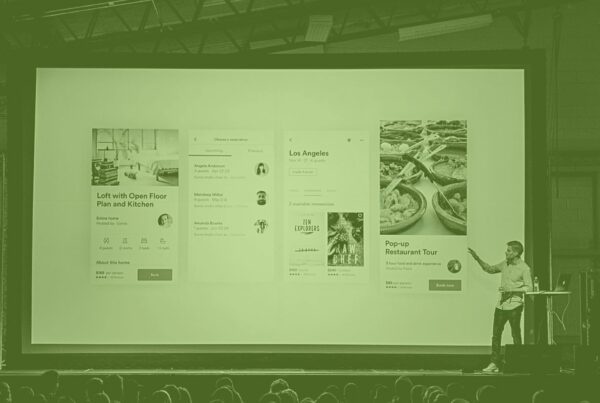Event technology has finally become an integral part of our event strategies. It’s taken us many years, even though many event profs have been preaching about numerous benefits of event technology for ages.
The pandemic sped up the adoption of technology and software solutions in the events industry. After all, virtual and hybrid events fully depend on technology. And as event planners were somewhat forced into a technological era of event planning, many of them started seeing the benefits of event technology.
Additionally, let’s not forget that 73% of millennials are now in decision-making roles. As such, they’re the dominant audience at corporate events and conferences. Their generation as well as anybody following theirs has been acquainted with technology early on in their lives. For them, technology is a necessity and not just a nice cherry on top.
It’s not just that technology appeals to our attendees. Event technology solves many common event planning pain points. It saves time, optimizes event management, boosts engagement, and thus makes event marketing more profitable.
Event Technology Provides Analytics & Data
Prior to event apps and platforms, event planners relied on pre-event and post-event surveys to measure event ROI. Such calculations rarely gave a realistic picture of an event’s success as the open rates rarely reached statistically significant percentages.
The game has since changed. Data insights and analytics reports are one of the most important benefits of event technology. Planners need to find the right piece of technology that spits out the right analytics for them to measure event KPIs that matter for their event. They can track customer behavior, lead generation, profit, and more.
The Benefits Of Event Technology & Effective Communication
Technology has enabled us to communicate with virtually anybody anywhere at any time – both in our personal as well as professional lives. Event technology allows attendees to message each other before, during, and after the event, making it easier than ever for people to network.
Additionally, event planners can inform attendees about any potential schedule changes via event apps much more effortlessly. They can also set up chatbots that answer questions about the event.
Event Technology Supports Sustainability
In-person events have a notoriously big carbon footprint and produce a lot of waste. Planners who strive to plan truly sustainable events can use technology solutions to curb the effect that the events industry has on the environment.
Virtual events are far more environmentally-friendly than in-person events. They require no travel and do not produce as much waste. But face-to-face events, too, can be more sustainable thanks to the benefits of event technology. With all communication hosted on platforms or apps, there is no need for excessive amounts of paper schedules and printed event signage. Planners can even plan on going completely paperless.
The Security Benefits Of Event Technology
When the COVID-19 pandemic hit us and the importance of safety and security went through the roof, we turned to event technology to make our events safer. RFID wristbands or RFID masks make contact tracing easier. Additionally, attendees can use the RFID technology to signal to other attendees how comfortable they are with social distancing. RFID can also be used to ensure the optimal show flow and prevent any bottlenecks.
But it doesn’t take a worldwide pandemic to know the benefits of event technology for security reasons. Badges, for example, have made security checks better and more pleasant. On the more futuristic side, events can implement facial recognition at the check-in process.
Planners can also dedicate a page to security and safety on event apps. For example, they can leave safety instructions and provide a list of important contacts.
The Benefits Of Event Technology For Audience Engagement
Audience engagement is one of the most talked-about pain points for event planners, especially when planning hybrid and virtual events. Event technology can increase audience engagement in various ways, the most common ones being:
- Event gamification: incentivizing attendees to participate in the event by rewarding them;
- Audience response technology: polling, Q&A, receiving feedback, etc.;
- Meeting attendees on the platform and making connections as they would on LinkedIn or other social media platforms;
- On-demand content: attendees can watch sessions and panels after the event and thus gain more autonomy about the experience;
- Take your event to the next level by incorporating VR or AR into your events;
- Bringing attendees up on a virtual stage, ie. Sparkup.
 Event Platforms Are Turning Into Community Platforms
Event Platforms Are Turning Into Community Platforms
As event platforms took over the event tech market, community marketing has become the next big thing in the event space. Communities offer year-round audience engagement. In a sense, certain aspects of the event never end. People can communicate, watch content at their leisure, and attend webinars.
But what brings the entire community together is the big in-person event. Hosting a community on an event platform is an investment, but it can definitely pay off as it offers value to attendees and sponsors alike.
Event Tech Assists Event Professionals
The final benefit of event technology is that it saves event planners a lot of stress, time, and energy. According to Bizzabo’s 2020 study, 89% of businesses that use event tech save 200 hours (= five work weeks) per year. Additionally, 20% save more than 360 hours per year.
Event technology automates many processes, from registration, catering, and measuring event ROI. It makes event management easier, but only if you know how to leverage technology for your particular event. Technology for technology’s sake, on the other hand, will likely not yield great results.
Event Technology Is Your Best Friend
The benefits of event technology far outweigh the inconvenience of learning how to use them. The events industry is growing increasingly digitalized and it’s our responsibility to keep up with trends should we want to see great event marketing success. Event technology is not something that only concerns virtual and hybrid events. It’s the very foundation of a modern multi-event strategy and a sure way to measure and prove ROI to decision-makers and stakeholders.
As a comprehensive event management company, the Endless Events team helps event marketers reach their event goals by offering services in event technology, production, strategy, and creative design. If you’re looking for a bespoke partner in the events industry, reach out to us. The Endless team is here to help.
If you’re interested in the vast world of event technology, make sure to subscribe to Endless Events’ Event Tech Podcast. We keep our listeners informed about all the trends in the ever-evolving space of digital innovation.
Editor’s Note: This blog post was originally published in 2013 and has been completely updated for accuracy and comprehensiveness.








